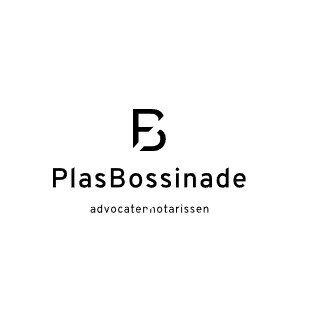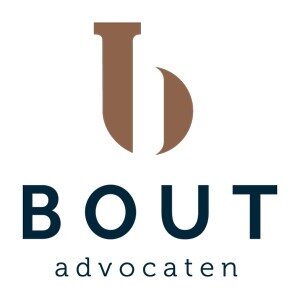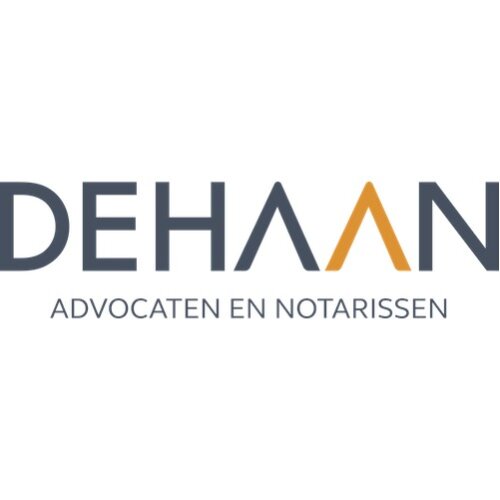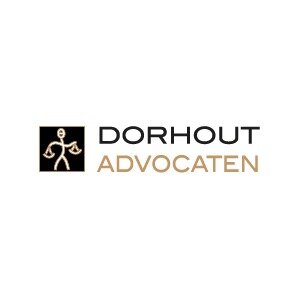Best Corporate Governance Lawyers in Groningen
Share your needs with us, get contacted by law firms.
Free. Takes 2 min.
List of the best lawyers in Groningen, Netherlands
About Corporate Governance Law in Groningen, Netherlands
Corporate governance refers to the framework of rules, practices, and processes by which companies are directed and controlled. In Groningen, Netherlands, corporate governance plays a crucial role for businesses ranging from small startups to large multinational corporations. Dutch corporate law provides a strong foundation for good governance, fostering transparency, accountability, and business sustainability. Groningen, as a dynamic economic hub in the northern Netherlands, follows national Dutch laws while also adapting to local commercial realities and European Union regulations.
Why You May Need a Lawyer
There are several situations where individuals and businesses in Groningen may require legal assistance in corporate governance matters. These include:
- Setting up a new company or changing its legal structure
- Drafting or amending articles of association and shareholder agreements
- Ensuring compliance with Dutch and EU corporate regulations
- Navigating director and board member responsibilities
- Managing stakeholder disputes or shareholder disagreements
- Guidance during mergers, acquisitions, or corporate takeovers
- Handling conflicts of interest and ethical business conduct
- Meeting reporting and disclosure obligations
- Dealing with the removal or appointment of directors and officers
- Responding to regulatory investigations or audits
A lawyer with expertise in corporate governance can help prevent legal issues, resolve disputes efficiently, and ensure that your organization remains compliant at all times.
Local Laws Overview
Corporate governance law in Groningen is shaped by Dutch civil law, particularly the Dutch Civil Code (Burgerlijk Wetboek), which governs company structures, director duties, and disclosure requirements. The Netherlands has specific laws for different company types, such as the BV (Besloten Vennootschap - private limited company) and NV (Naamloze Vennootschap - public limited company).
Key aspects include:
- Board Structure: Dutch law distinguishes between one-tier and two-tier board systems. In a one-tier system, management and supervision are combined in a single board, while in a two-tier system, there are separate management and supervisory boards.
- Duties of Directors: Directors must act in the best interest of the company and its stakeholders, comply with fiduciary duties, and avoid conflicts of interest.
- Transparency and Reporting: Dutch companies are required to maintain transparent records, prepare annual accounts, and, in certain cases, undergo audits.
- Shareholder Rights: Shareholders enjoy voting rights, the right to information, and the ability to convene meetings or initiate legal action in case of mismanagement.
- Works Councils: Larger companies may be required to establish works councils, representing employee interests in corporate decisions.
- Code of Corporate Governance: The Dutch Corporate Governance Code applies to listed companies and sets best practices for management and supervision, though unlisted companies may also voluntarily comply.
Groningen's businesses must observe these national and EU legal standards while responding to regional economic developments.
Frequently Asked Questions
What is corporate governance and why is it important for companies in Groningen?
Corporate governance is the system of rules and practices through which companies are run and monitored. For companies in Groningen, it helps ensure ethical conduct, transparency, and accountability, which are essential for long-term business success and trust among stakeholders.
What types of companies are subject to corporate governance regulations in the Netherlands?
All companies, regardless of size, must observe certain corporate governance standards. However, specific rules apply depending on the legal form, such as BVs, NVs, cooperatives, and foundations. Listed companies face additional requirements under the Dutch Corporate Governance Code.
What are the roles of the management board and supervisory board?
In a two-tier board system, the management board oversees day-to-day operations, while the supervisory board monitors management performance and ensures compliance with laws and ethical standards. In a one-tier system, these responsibilities are combined.
How are directors appointed or removed?
Directors are typically appointed and dismissed by the shareholders' meeting, according to procedures outlined in the articles of association and Dutch law. Certain appointments may require the approval of supervisory boards or works councils.
What are the main responsibilities of directors under Dutch law?
Directors have fiduciary duties to act in the company’s best interest, manage risks, comply with legal obligations, maintain accurate records, and prevent conflicts of interest.
Do Dutch companies need to have a works council?
Companies with 50 or more employees are generally required to establish a works council, which represents employee interests and consults on significant corporate decisions.
What is the Dutch Corporate Governance Code?
The Dutch Corporate Governance Code sets principles and best practices for listed companies. It covers board responsibilities, conflicts of interest, renumeration, risk management, and stakeholder relations. While mainly applicable to listed companies, others may voluntarily adopt it.
How does the law address conflicts of interest?
Directors and board members must disclose any actual or potential conflicts of interest. They are prohibited from participating in deliberations or decisions where such a conflict exists.
What are my options if I disagree with a board decision?
Shareholders and stakeholders can raise concerns during meetings, escalate matters to court, or request an investigation by the Enterprise Chamber of the Amsterdam Court of Appeal, which has special jurisdiction over corporate disputes.
How can a legal expert help my company stay compliant?
A corporate governance lawyer can provide advice on drafting internal policies, structuring your company, ensuring compliance with current regulations, resolving conflicts, and representing you during investigations or legal proceedings.
Additional Resources
For those seeking more information or support on corporate governance in Groningen, consider contacting the following:
- Kamer van Koophandel (KvK) - The Dutch Chamber of Commerce, for company registration and legal information
- Autoriteit Financiële Markten (AFM) - The Dutch Authority for the Financial Markets, which supervises corporate conduct and compliance for listed companies
- Rijksdienst voor Ondernemend Nederland (RVO) - The Netherlands Enterprise Agency, offering practical guidance to entrepreneurs
- Enterprise Chamber of the Amsterdam Court of Appeal - Specializes in corporate disputes and investigations
- Local law firms in Groningen - Many specialize in corporate law and governance matters
- Universiteit Groningen - The university’s law faculty often hosts seminars and publishes research on corporate governance
Next Steps
If you need legal assistance in corporate governance, start by clearly identifying your business needs or the specific issue at hand. Gather relevant documentation such as company articles, shareholder agreements, and recent board meeting minutes. Next, consult with a qualified lawyer or corporate law firm experienced in Dutch corporate governance. They can assess your situation, provide tailored advice, assist with legal filings, and represent your interests if disputes arise. You may also contact local business support organizations for preliminary guidance or referrals to legal experts. Taking proactive steps ensures your company stays compliant and well-governed in the evolving economic landscape of Groningen.
Lawzana helps you find the best lawyers and law firms in Groningen through a curated and pre-screened list of qualified legal professionals. Our platform offers rankings and detailed profiles of attorneys and law firms, allowing you to compare based on practice areas, including Corporate Governance, experience, and client feedback.
Each profile includes a description of the firm's areas of practice, client reviews, team members and partners, year of establishment, spoken languages, office locations, contact information, social media presence, and any published articles or resources. Most firms on our platform speak English and are experienced in both local and international legal matters.
Get a quote from top-rated law firms in Groningen, Netherlands — quickly, securely, and without unnecessary hassle.
Disclaimer:
The information provided on this page is for general informational purposes only and does not constitute legal advice. While we strive to ensure the accuracy and relevance of the content, legal information may change over time, and interpretations of the law can vary. You should always consult with a qualified legal professional for advice specific to your situation.
We disclaim all liability for actions taken or not taken based on the content of this page. If you believe any information is incorrect or outdated, please contact us, and we will review and update it where appropriate.











